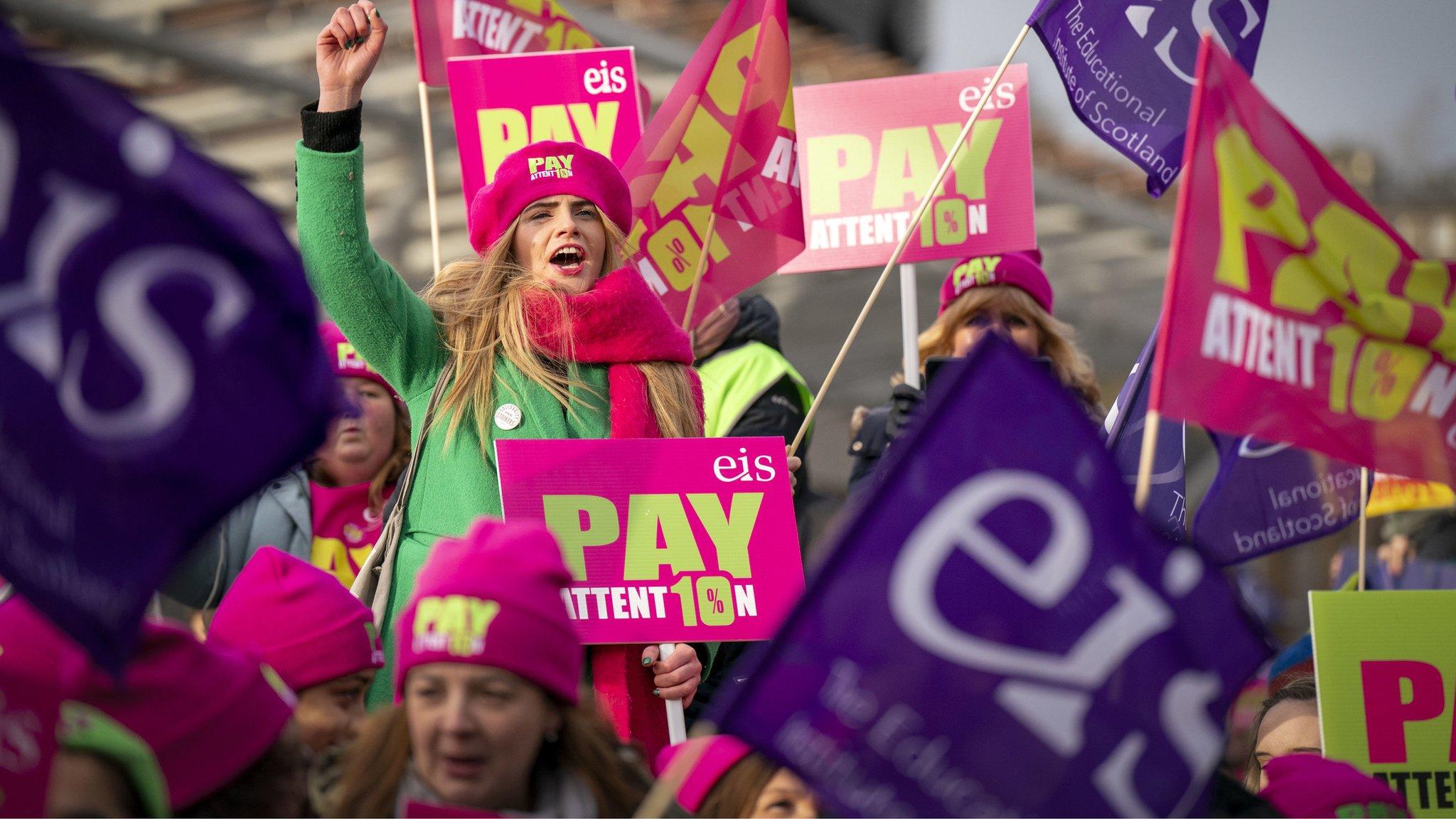Teachers say there is 'no other option' but to strike
- Published
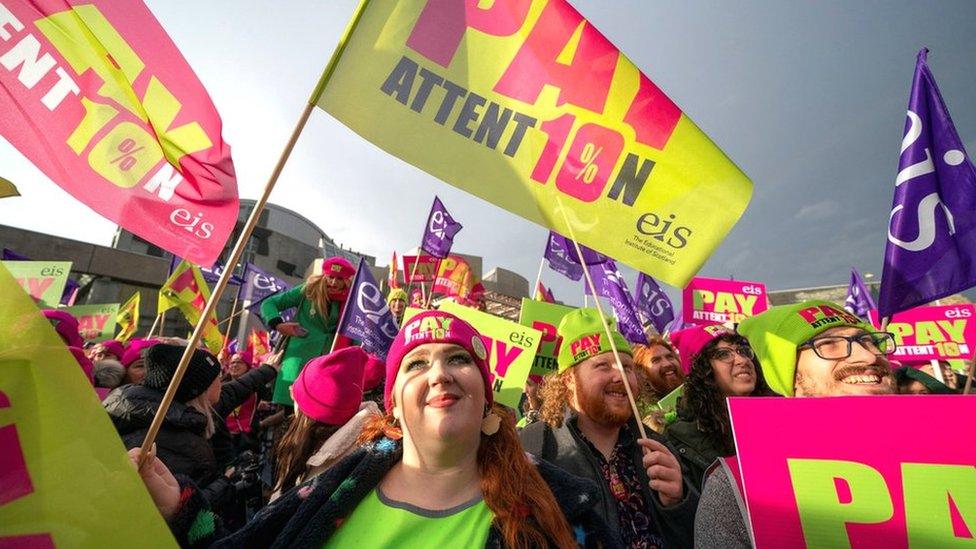
Members of the EIS union walked out on 25 November
Members of the SSTA and NASUWT unions are taking part in the first of two days of industrial action across Scotland in their ongoing pay dispute.
It follows the EIS strike which saw almost all schools close on 24 November and the rejection of the latest pay offer of up to 6.85%.
The Scottish government said union demands were "not affordable".
BBC Scotland asked teachers why they have swapped the classroom for the picket line.

'Teachers have to take second jobs'
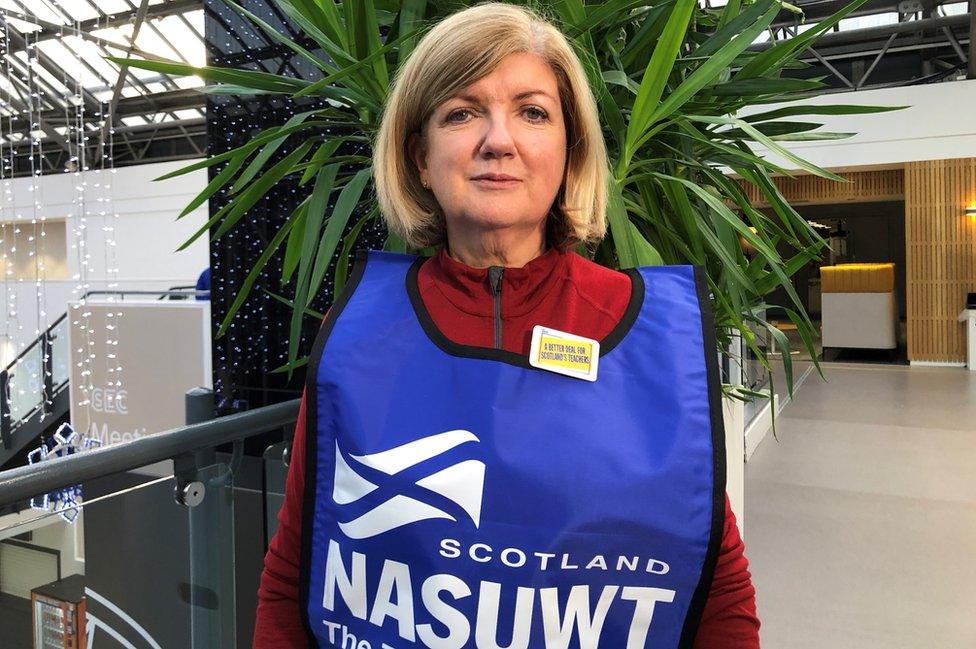
Business and computing teacher Ann Connelly said teachers had no alternative to strike action.
She said: "It feels wrong being out on strike.
"We don't want to upset children's education but we have been left with no option now with the offers we have been given.
"It is getting tough. Teachers are now having to take second jobs. They are having to cut back on household expenses."
Ms Connolly said many pupils experienced "great deprivation" which has forced her and her colleagues to step in and help them.
But in turn this generosity has heaped extra pressure on them.
Ms Connelly, who is based at Lourdes Secondary in Glasgow, said: "If they are offering a teacher who has been qualified for five years 5% and inflation is now running at over 11% it is totally unacceptable."
She said it was time now for all parties to get round the table and come up with a "decent offer,"
Ms Connelly added: "Teachers don't want to be out on strike, we don't want to be interrupting children's education and we don't want to be causing hardship to other families."
She will return to work on Thursday and, barring a breakthrough, take part in action short of a strike from Friday.
'Our mortgages are not affordable'
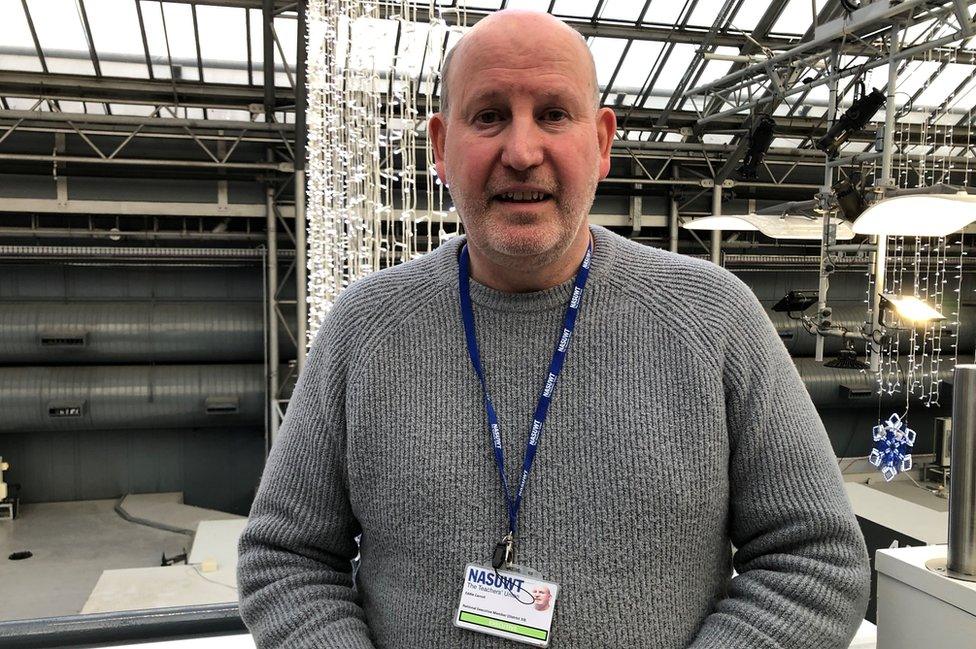
Eddie Carroll has been a physics teacher for 34 years but admitted this was one of the most challenging periods of his career.
He told BBC Scotland: "It is very difficult for any teacher to come out on strike because any action that we take affects our children - and that's why we go to school in the morning."
But he feared doing nothing now would only make thing worse for children in the long run.,
Mr Carroll warned the profession was facing a "recruitment and retention emergency" and said young teachers were not coming through due to the salaries and conditions on offer.
He added: "The cabinet secretary has said our rises are not affordable. I would say that our mortgages are not affordable.
"Our energy bills are not affordable.
"It is a very, very difficult world out there and we are sharing that with all kinds of other public sector workers."
Mr Carroll remained hopeful of success and said teachers would have to "draw a line in the sand" where they would not disadvantage children.
He also said a bigger issue was at stake than securing a pay rise now.
Mr Carroll, who teaches at St Margaret's High School in Airdrie, said: "A lot of the pupils who are sitting in our classes are the teachers of the future.
"If they see their teachers at this point in time demoralised, under paid, undervalued then they are not going to want to come into the profession and, ultimately, we are not going to get them coming through the system."
'I know colleagues using food banks'
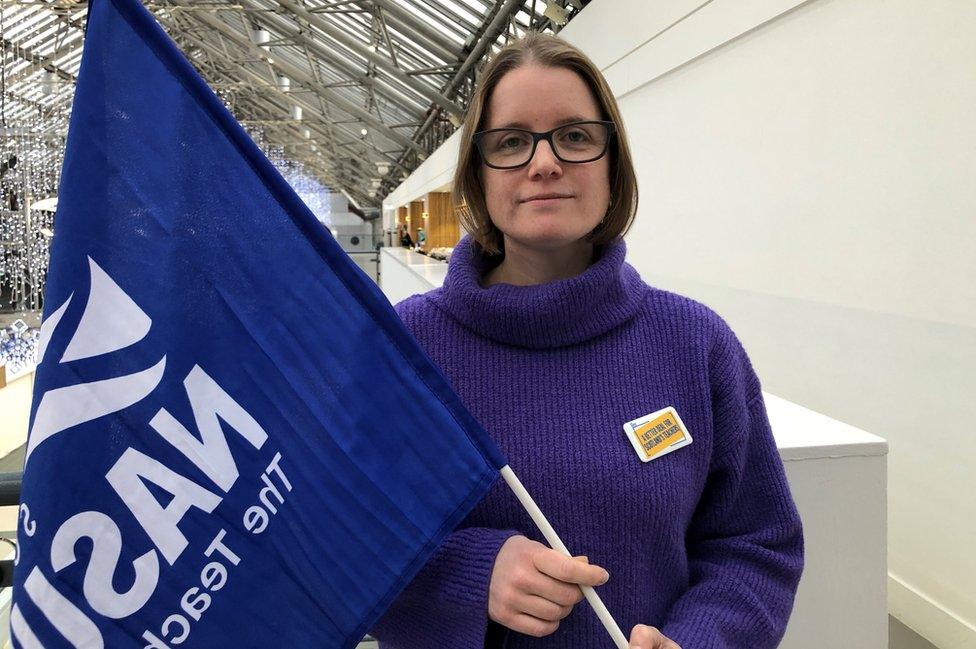
Janet Westwater said she felt "really passionate" about being out on strike to secure a better deal for Scotland's teachers.
She said: "We have just worked through the pandemic.
"We haven't been offered an increase. We haven't even been offered a restoration of our pay.
"It's tough. Morale is low."
The East Dunbartonshire-based drama teacher has 18 years' experience but has been left shocked by some of the testimonies she has heard in recent months.
Ms Westwater said: "I know that there's colleagues struggling in Scotland.
"I do know that there are colleagues using our benevolent fund.
"I know that there are colleagues using food banks to support themselves and their families and that's not a situation that we should take lightly in Scotland."
The teacher said strike action was the "last possible course of action" but she hoped it would make a difference.
'This has been a long time in the making'
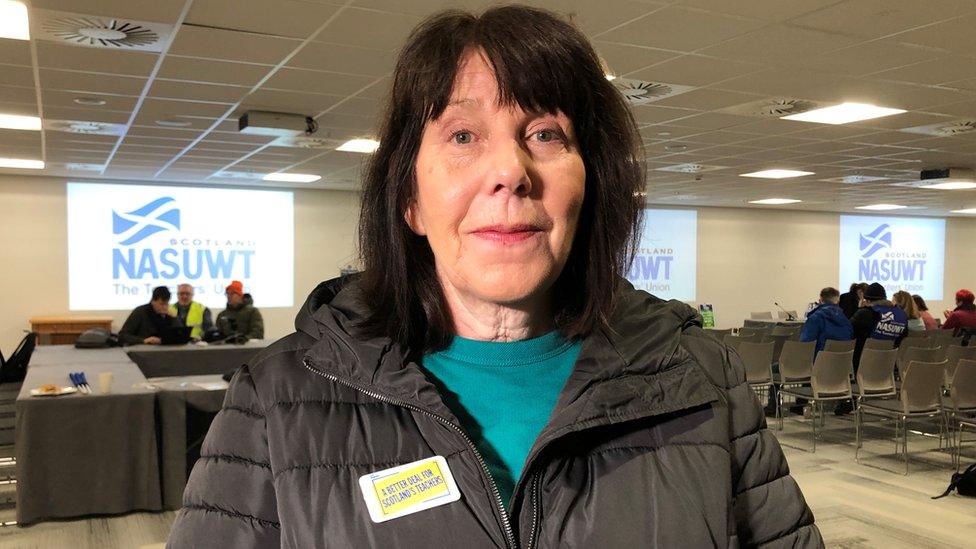
Jane Peckham, deputy general secretary of the NASUWT, said she was "immensely proud" of her members and heartened by the support they have received from the public.
She said: "I don't think taking industrial action is ever an easy decision.
"This has been a long time in the making.
"But frankly members have just now had enough."
Ms Peckham highlighted the vital role teachers played during the pandemic but added the cost of living crisis had left them at the "end of their tether".
She also described teaching as "a job that you don't put down at the end of the day" due to the challenges of managing issues such as workload and pupil behaviour.
The deputy general secretary said the next stage of the pay campaign would involve action short of a strike action from Friday.
It includes not covering for absent colleagues and a reduction in the number of meetings members attend.
Ms Peckham added: "Anything that is not a real terms increase has really got to be reconsidered to give our teachers that sense of value and allow them to continue to do the job that they do."
- Published7 December 2022
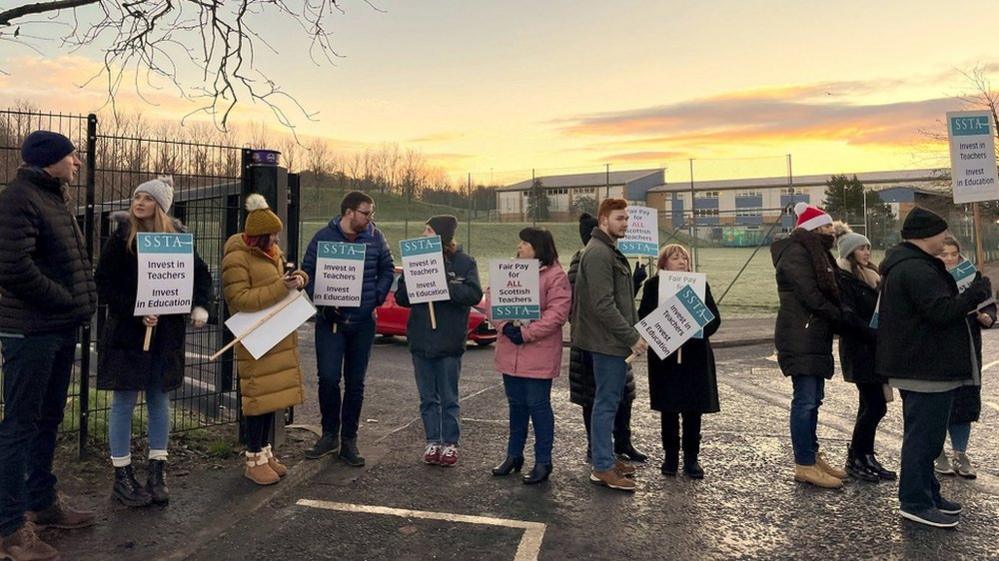
- Published24 November 2022
